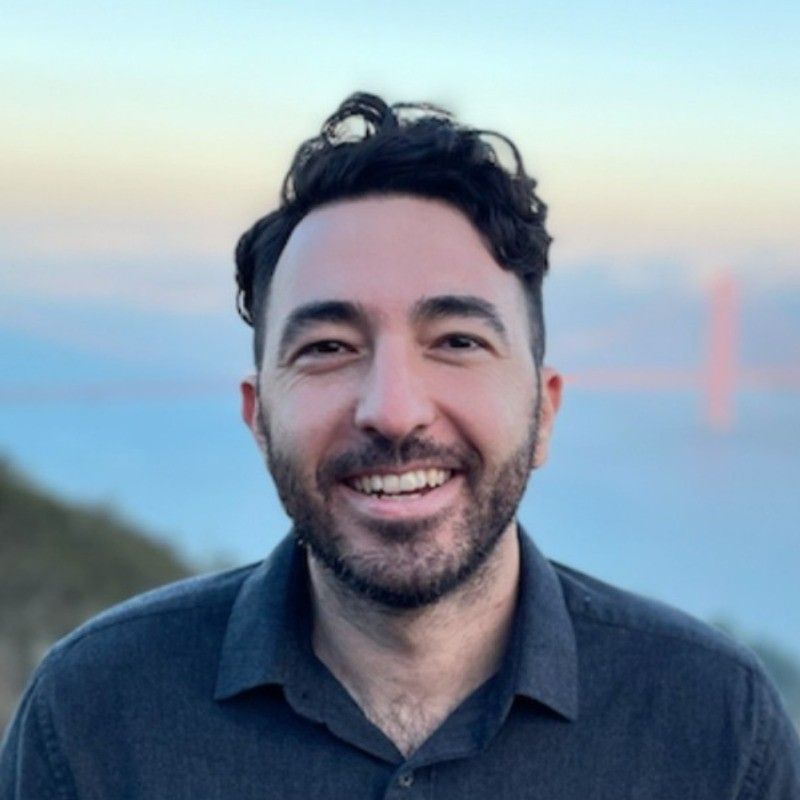We recently connected with Jeremy Wolf and have shared our conversation below.
Jeremy, sincerely appreciate your selflessness in agreeing to discuss your mental health journey and how you overcame and persisted despite the challenges. Please share with our readers how you overcame. For readers, please note this is not medical advice, we are not doctors, you should always consult professionals for advice and that this is merely one person sharing their story and experience.
I played with a lot of really great athletes growing up, and I always felt like I was never at their level. They either went Division I or got drafted right out of high school while I played Division III. But I did that with the intention of trying to play every single game, and I did. And what I learned from that experience is that trusting your gut and trusting your instincts is the most important thing that you can learn in life and in business. This gut feeling allowed me to become the best baseball player I possibly could, which led to me getting drafted and playing on an Olympic team. I was able to, over my years on the outside looking in, take care of what I needed to do to get to the next level.
Doing all of this wasn’t easy though. I constantly felt like I was underperforming, and I put so much pressure on myself to succeed, but I didn’t define what success was to me. I never learned how to handle my emotions, how to prepare for failure or competition or anything else that comes with trying to perform at your highest level.
In college, I was really lucky that my skills outperformed my competition. But my mental health suffered at higher levels because I never practiced or trained or had any resources to support me. I lost sense of what got me there, and I lost the ability to perform at my highest level because my energy was spent elsewhere. I was so emotionally drained that getting injured and getting released was a relief because I didn’t have to put myself in that position anymore.
What I began to learn from that after six, seven, eight years into it is that you can notice the little things while you’re coaching or when you’re watching sports now that you realize you didn’t perform correctly when you were actually playing. You put yourself in their shoes and you realized that there were things you could have improved upon. If I knew what I know now back then, I would have been a much better baseball player, but I just didn’t have the ability to know these things. And so, I just had to compete and fail and ultimately leave the game because I wasn’t able to keep up.

Thanks, so before we move on maybe you can share a bit more about yourself?
I’m a former professional and Olympic baseball player, union advocate, and writer. Most of my work comes down to supporting creative people and the communities they lead.
A few years ago, I founded More Than Baseball (www.morethanbaseball.org), a nonprofit that helped form the Minor League Baseball Players Association. In some ways, I still can’t believe we got to do this work. Today, the MiLBPA is the largest union in professional sports.
In 2021, I co-founded MindReady (www.mindready.co) to help provide athletes with mental performance coaching and education. As someone who has dealt with mental health issues stemming from experiences on and off the field, the work I do with MindReady provides me with solace and comfort knowing athletes have the resources I wasn’t afforded.
We provide 1-on-1 and team coaching to athletes and have found a lot of success by providing our athletes with the tools they need to thrive on the field and in the classroom.
Looking back, what do you think were the three qualities, skills, or areas of knowledge that were most impactful in your journey? What advice do you have for folks who are early in their journey in terms of how they can best develop or improve on these?
1. I knew that I was going to outwork everybody else on my team in the weight room and on the field. I always gave 110% energy and focus because that was what I could control.
2. I knew that because I wasn’t the best athlete, I had to be great at one thing. And that thing was consistency. I was always consistent in my approach, my preparation, and my performance.
3. What I learned throughout my career is to find the things in your game that make you the best version of yourself, and to treat games and practice as the same thing. The more you can train yourself to prepare for those movements and that repetition of playing your sport, the better you are going to be when it really matters.
For someone in high school, college, or a professional right now, or parents of youth athletes, what I would say is to create a specific routine. I always did the same thing before games because it trained my mind and trained my body so that every single day was no different than the rest. You can control your routine, and you can control preparing yourself for a competition.
Now, I wish I worked harder on my emotions before games and at-bats and training myself for what to expect in terms of my output and my relationship to failure but building your routine and incorporating lessons you learn in mental performance practice is going to be very important for athletic development.

Any advice for folks feeling overwhelmed?
When I feel overwhelmed, I will play my guitar, play soccer with friends or go play golf. I will take a step back from the things that I’m doing and make sure I come back to my center. I’ll meditate at times, but sometimes, that isn’t always the most effective tool for me to re-center. I find that being active and moving is the best way to recenter myself when feeling overwhelmed.
Contact Info:
- Website: https://www.mindready.co
- Instagram: https://www.instagram.com/mindready_us
- Linkedin: https://www.linkedin.com/company/mindready
- Twitter: https://twitter.com/mindready_us
- Youtube: https://www.youtube.com/channel/UCvNaPEtEibZl6-pn3FK20Ig

Image Credits
Credit: Jeremy Wolf
so if you or someone you know deserves recognition please let us know here.




